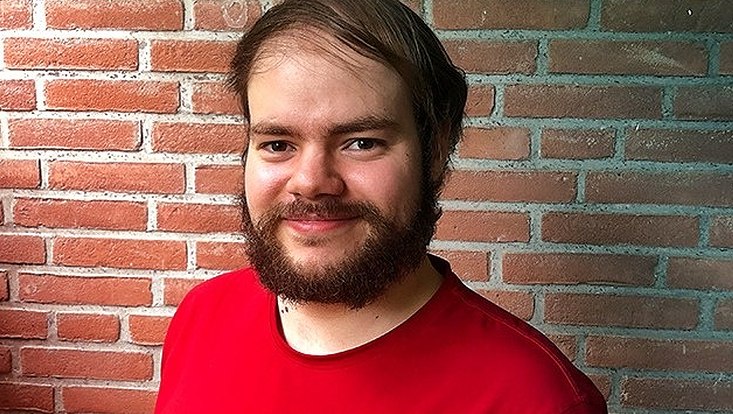Sascha Diefenbacher
28 May 2020

Photo: Eren
Sascha Diefenbacher has made his way from the very south of Germany to Hamburg. He grew up near Konstanz and did both his Bachelor and Master's on LHC phenomenology at the University of Heidelberg. His Master thesis, finished in 2019, focused on Machine Learning in High Energy Physics and he worked on applying a novel Neural Network architecture called Capsule Network to the classification of LHC events.
What is the topic of your research?
I am part of Gregor Kasieczka's group, where I work in collaboration with the Future Linear Colliders Group at DESY on using generative machine learning models for calorimeter simulation. This means we take the very methods computer scientists have been employing to produce convincing fake images of human faces or kittens and use them to simulate how a detector responds to an incoming particle. The main advantage of generative networks is that they are orders of magnitude faster than current state-of-the-art simulation software, allowing for significantly more data to be simulated in the same amount of time.
What fascinates you about your research focus?
Ever since I started working in the field of Machine Leaning, it has been fascinating to me. The progress made over the last couple years has – quite frankly – been staggering, moving things like self-driving cars from the realm of science fiction almost into reality. So it only seems natural to me to try and harness this power in an attempt to gain deeper insight into the fundamental law of the universe, like we do in particle physics.
What do you like about the cluster Quantum Universe?
For me, the regular Quantum Universe meetings are very useful. They not only allow me to learn about other groups' current research projects but also help me get in contact with people working on similar problems. Further, regularly presenting my results at these meetings gave me invaluable feedback by colleagues from various fields of particle physics. I also enjoy the wide range of courses and colloquia offered by the cluster, as they enable me to broaden my physics knowledge beyond the scope of my PhD thesis.
What do you like to do in your free time?
During my time as a Bachelor student in Heidelberg we had a rule in our group that every student finishing their thesis had to bake a cake. This is when I found I really enjoyed making cakes. Ever since baking has allowed me to challenge myself with new and more elaborate cake designs, while also giving me something I can – quite literally – share with my friends.
